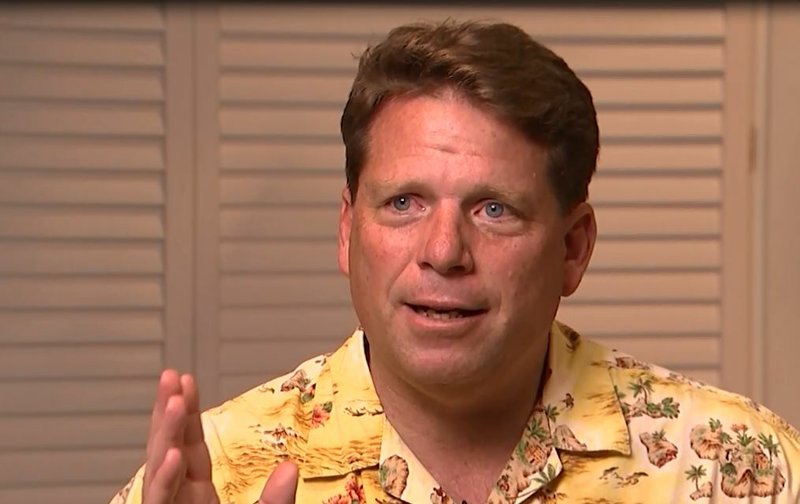- Can you tell me how you started your journalism career and how you started writing for the AP?
Well, to begin I went to Graduate school at the University of Oklahoma. Graduate shool Ok. I started working nights at the local newspaper the Norman Transcript. Soon after, I was accepted as an intern for the AP for the summer. A temporary position was available after a writer ended up leaving the AP so I took his spot during a legislature session and then I became a permanent reporter.
- When did you start becoming interested in writing about golf?
I started becoming interested in the golf aspect of writing when I had to cover the 1994 PGA tournament in Tulsa where I was the news correspondent. Then, I took a sports writing job in Jacksonville, FL to help a writer, but after I took his 1998
- Martha Burk in 2002 protested against Augusta National for them to change their policies to include women in their club. She mentioned that you called her up when Hootie Johnson published a press release in response to her letter to him the week before. Can you tell me why you decided to call her and get involved with this situation? What was of interest to you in particular?
Well it was a huge interest because it had to do with the Masters tournament. I called her cause thats what you do as a reporter. I was alerted on a Tuesday night a guy by a source at Augusta National the night before the press release. He told me to wait until the morning to write about it. In turn, I asked him how much space should I set aside. I was thinking maybe 3-4 paragraphs, but it was more like 3-4 million [laughs]. At 11 AM he sent me a about a 2-page letter from Hootie explaining that Martha had called and felt threatened by their club. To sum the letter up, Hootie said the club would not be bullied into changing its policies. I got this and the first inclination was to call Martha, but I didn’t know much about her. I found her number online and she answered. I was the first person who called her to get her point of view. All she got from Hootie is a three sentence rely saying he’s not interested, but the press got 2 pages. I think she was taken aback about how he went about it. The only thing Martha regrets is not knowing much about golf or the Masters. She was blindsided to put together a golf expertise that she didn’t have.
- Did you follow this campaign / protest from beginning to end? How much reporting did you do on the subject?
Of course. I followed it a ton it became a dominant story. It became my story because I was part of the AP. I had to stick with it. I stood with it for a whole year. When they canned their advertisers and asked players what they thought about it.
- What do you think of Martha Burk and what she stood for?
I don’t have an opinion. I try to stay clear of that. I did the news part of it, but we had columnist who took opinions. Too many times I saw that golf writers taking an opinion, which I think principally is the wrong way to go. At one point a man said “Hootie Johnson cut loose his sponsors dumb-foundingly.” I think that’s been her whole campaign and what she does. I have a hunch she didn’t really know what she was getting into because the scope and popularity of Augusta National. She’s a Texan and she’s a no nonsense Texan, but she was enjoyable to talk to. She didn’t back off or become intimidated by Hootie. He drew his line in the sand and stayed put until his death. It became a fascinating debate. Their principle seems to be outdated for a club not to allow women, so the media was quickly on her side. The NY Times in particular really picked up the cause for her. On the other side, Hootie was technically the most progressive chairman Augusta has ever had. He was the first person to hire a person of color, he was close with women, and was liberal in terms of business. He said that he has a right to a private club and invite or not invite whoever he wants. There are two sides to it. Thats why I think it was important to not take an opinion, especially as a reporter.
- Do you think her protest made a difference in the long run?
On the one hand we’ll never know. Martha can claim success because they now accept females at their club. She had one hands tied behind her back. The authority there was beyond her. The authorities kept her from being outside the gates, which was difficult. There was a feeling this protest wasn’t going to be as big as she thought it was gonna be. She talked a big game, but doesn’t always come through. I believe it was an anti-climactic end.
- Do you think sexism and discrimination in the golf industry is still an issue to this day?
There is still a number of clubs that are all-male, but most of the organizing bodies such as the PGA Tour have stepped forward. The Western open lost that tournament because no women were allowed there. If you don’t have women you can’t host a PGA Tour event.
- What advice can you give to other journalists or reporters who want to cover controversies like this?
Two things: never take anything personal and handle it in an unbiased manner. Proper job reporting means you cant bring all sorts of passion or cynicism to the part if there is an injustice. You still have to be even – meaning to make sure you talk about both sides at all times. The difficulty here is that Hootie wasn’t talking. After the statement he only agreed to four interviews until we got to the Masters the following year. Always make phone calls. Handle it like you would any other story and handle both sides.



